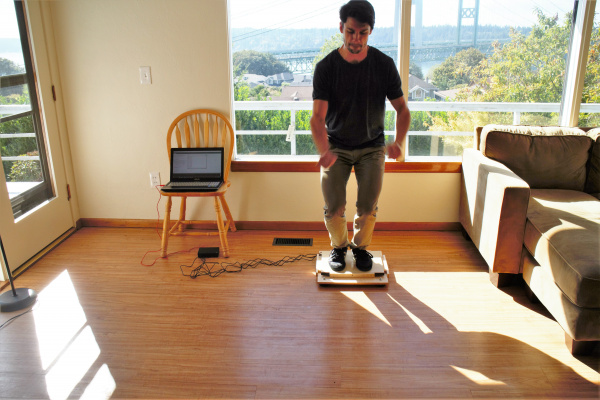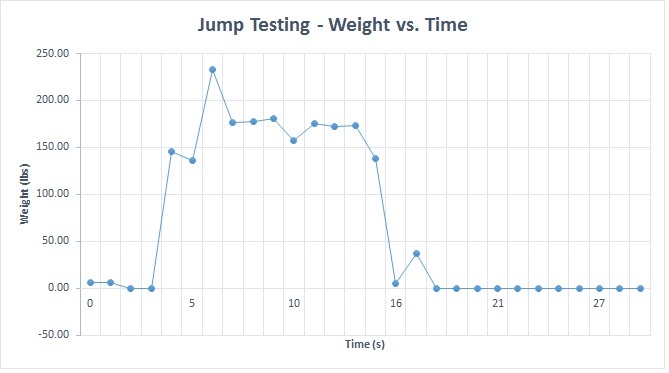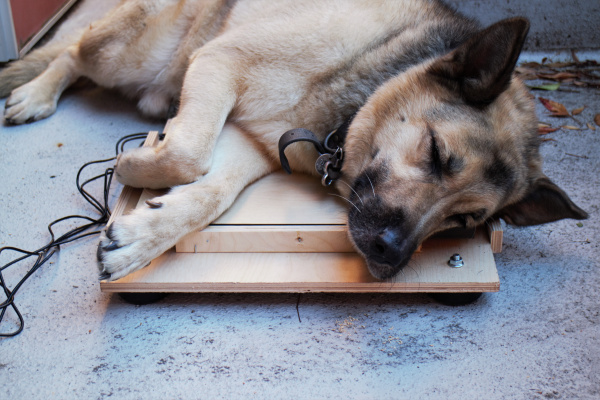IoT Industrial Scale
Lessons Learned and Next Steps
The original goal of my scale was to use it as an impact force plate to gather data on the forces due to jumping (specifically in parkour). Alas, the OpenScale is intended for constant loads and the fastest print rate is 505 ms, which is too slow to get accurate readings on impact force.
Fortunately, we can still use the scale to gather very general data and use this design as a foundation for future versions. Some quick and well-timed preliminary testing by a professional jumper (~165 lbs) resulted in the following readings:
This shows a single jump, where the landing corresponds to the highest reading (~ 230 lbs), and the point just before that (~ 135 lbs) is when his feet were in the air. (The weight decrease + little blip after the the peak is when he was stepping off the scale.)
In addition to an updated program to print data faster, I'll need waaay more data and a consistent, controlled procedure to actually determine any kind of reasonable relationship between impact force, jump height, and weight. Also, the top platform was a bit dented after these tests, so I'll need a sturdier wood, or metal, scale platform.
Overall, this was a cool proof-of-concept and an informative preliminary test! Plus, there are tons of other practical uses for this simple Internet-connected scale!
Educator Extension
Beyond being a great hands-on project for computer science, engineering, and electronics courses, this is a handy experimentation tool for physics classrooms! Use it to illustrate the difference between weight and mass, demonstrate how acceleration relates to force, or use the on-board temperature sensor to estimate the mathematical relationship between thermal expansion and load cell output.
More Applications:
- Use the system to measure the weight of a rain barrel and notify you when it is full.
- Make a bathroom scale that keeps track of your weight (or your animal's weight).
- Monitor the weight of your Halloween candy to be sure that no one is sneaking some from under your nose.
Happy building!
For more IoT SparkFun tutorial fun, check out the links below:


